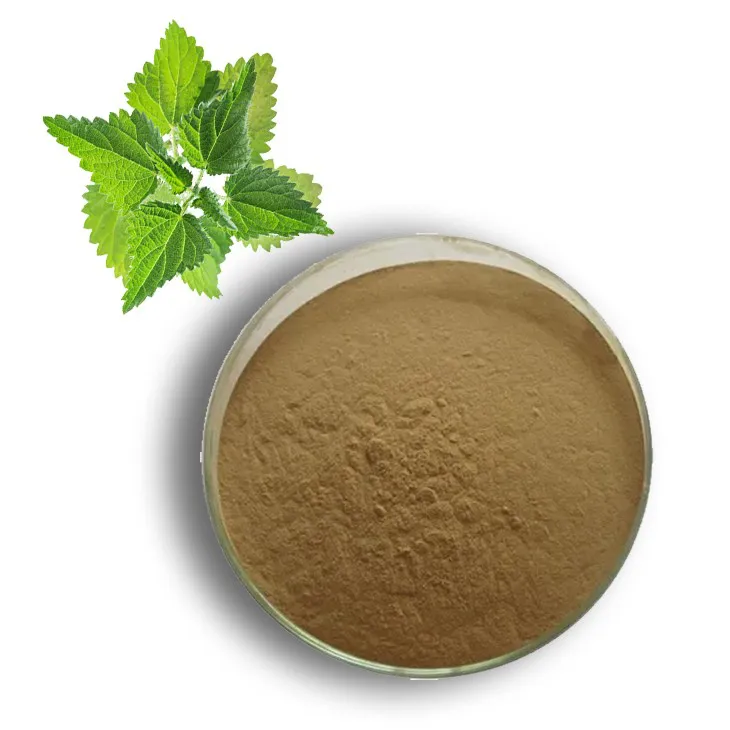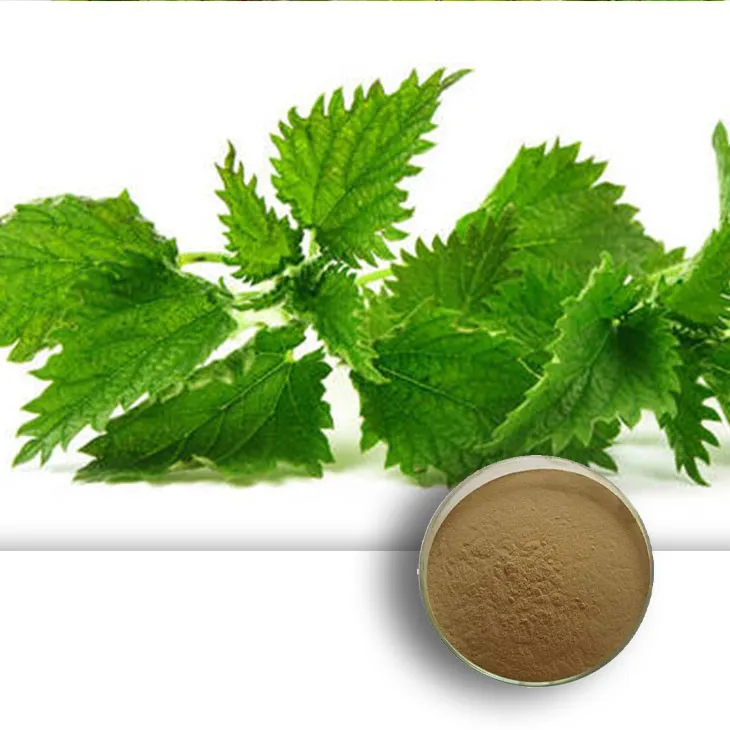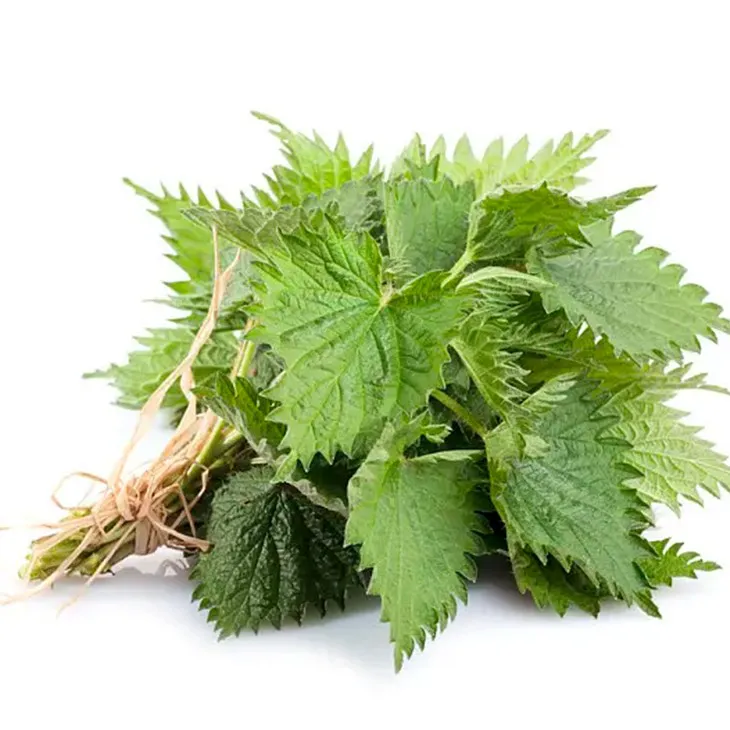- 0086-571-85302990
- sales@greenskybio.com
Nettle Leaf Extract: Should You Use It for Skin Care?
2024-11-11

1. Introduction to Nettle leaf extract
Nettle leaf extract has been making waves in the skincare industry in recent years. It is derived from the stinging nettle plant, which has a long history of medicinal use. The extract is rich in a variety of nutrients that can potentially offer numerous benefits to the skin.

2. Nutritional Composition of Nettle leaf extract
Nettle leaf extract contains vitamins such as vitamin A, C, and E. Vitamin A is well - known for its role in skin cell renewal, helping to keep the skin looking fresh and youthful. Vitamin C is a powerful antioxidant that can protect the skin from free - radical damage, which is often associated with premature aging. Vitamin E also has antioxidant properties and can help to moisturize the skin.
In addition to vitamins, it also contains minerals like iron, calcium, and magnesium. These minerals play important roles in maintaining the overall health of the skin. For example, iron is involved in oxygen transport to the skin cells, which is essential for their proper function.
It also contains flavonoids and phenolic compounds. These are natural plant - based substances that have anti - inflammatory and antioxidant effects. The anti - inflammatory properties can be particularly beneficial for skin conditions that are associated with inflammation, such as acne or eczema.

3. Potential Benefits for Skin Care
3.1 Anti - Acne Properties
One of the most talked - about benefits of nettle leaf extract in skincare is its potential to combat acne. Its antibacterial qualities are believed to play a key role in this regard. The bacteria Propionibacterium acnes is often associated with acne breakouts. Nettle leaf extract can potentially inhibit the growth of this bacteria, reducing the likelihood of acne formation.
Moreover, the anti - inflammatory properties of the extract can help to reduce the redness and swelling associated with acne. This can make the skin look less irritated and more even - toned.
3.2 Anti - Aging Effects
As mentioned earlier, the presence of antioxidants such as vitamin C and E in nettle leaf extract can help to fight free - radical damage. Free radicals are unstable molecules that can damage skin cells, leading to wrinkles, fine lines, and a loss of skin elasticity. By neutralizing these free radicals, nettle leaf extract can contribute to a more youthful appearance of the skin.
Additionally, the vitamin A content in the extract can stimulate collagen production. Collagen is a protein that provides structure to the skin. As we age, collagen production naturally declines, leading to sagging skin. By promoting collagen synthesis, nettle leaf extract can help to keep the skin firm and supple.
3.3 Moisturizing and Nourishing
The combination of vitamins, minerals, and other compounds in nettle leaf extract can help to moisturize and nourish the skin. Vitamin E, in particular, has emollient properties that can prevent the skin from drying out. This can be especially beneficial for those with dry or dehydrated skin types.
The nutrients in the extract can penetrate the skin and provide essential nourishment at a cellular level. This can improve the overall texture and appearance of the skin, making it look healthier and more radiant.

4. Interaction with Different Skin Types
4.1 For Oily Skin
Oily skin types may benefit from nettle leaf extract in several ways. Its antibacterial properties can help to control the overgrowth of bacteria on the skin, which is often a problem for those with oily skin. This can reduce the occurrence of breakouts and clogged pores.
However, some people with oily skin may find that the extract is a bit too rich for their skin. It is important to monitor the skin's response and adjust the usage accordingly. For example, starting with a small amount of a product containing nettle leaf extract and gradually increasing the amount if no adverse reactions occur.
4.2 For Dry Skin
For those with dry skin, nettle leaf extract can be a great addition to their skincare routine. The moisturizing and nourishing properties can help to combat dryness and flakiness. It can also improve the skin's barrier function, preventing moisture loss and protecting the skin from environmental stressors.
However, dry skin may sometimes be more sensitive. It is crucial to choose a product with nettle leaf extract that is formulated for sensitive skin or to do a patch test before using it on the entire face.
4.3 For Sensitive Skin
Sensitive skin requires extra caution when using new skincare ingredients. While nettle leaf extract has anti - inflammatory properties that could potentially be beneficial for sensitive skin, it can also cause allergic reactions in some individuals.
A patch test should always be done before using any product containing nettle leaf extract on sensitive skin. If any redness, itching, or irritation occurs during the patch test, it is best to avoid using the product.
4.4 For Combination Skin
Combination skin can be a bit tricky when it comes to skincare. Nettle leaf extract may work well for the oily areas of combination skin, helping to control oil production and prevent breakouts. At the same time, it can also provide nourishment to the drier areas.
However, as with other skin types, it is important to pay attention to how the skin responds and adjust the usage if necessary.
5. Possible Side Effects
While nettle leaf extract has many potential benefits, it is not without possible side effects. Some people may experience allergic reactions to the extract. Symptoms of an allergic reaction can include redness, itching, swelling, or a rash on the skin.
In some cases, overuse of products containing nettle leaf extract may lead to skin irritation. This can happen if the skin is not used to the extract or if too much of the product is applied at once. It is always important to follow the instructions on the product label and not overdo it.
6. How to Incorporate Nettle Leaf Extract into Your Skincare Routine
There are several ways to incorporate nettle leaf extract into your skincare routine. One option is to use a skincare product that already contains the extract. There are many commercial products available, such as creams, lotions, and serums, that include nettle leaf extract as one of their ingredients.
Another option is to make your own DIY skincare products using nettle leaf extract. For example, you can make a nettle leaf infusion and use it as a toner. To make a nettle leaf infusion, you can steep dried nettle leaves in hot water for a period of time, then strain the liquid and use it on your skin.
If you choose to use a commercial product, it is important to read the label carefully to ensure that it is suitable for your skin type. If you are making your own DIY product, make sure to follow proper hygiene and safety procedures to avoid any contamination or adverse reactions.
7. Conclusion
Nettle leaf extract has a lot of potential when it comes to skincare. It is rich in nutrients and has several properties that can be beneficial for different skin concerns, such as acne, aging, and dryness. However, it is important to consider your individual skin type and any potential sensitivities before using it.
By being aware of the potential benefits and risks, and by taking the necessary precautions, you can make an informed decision about whether or not to incorporate nettle leaf extract into your skincare routine. Whether it becomes a "miracle ingredient" for you or not depends on your unique skin characteristics and how your skin responds to the extract.
FAQ:
Question 1: What are the main nutrients in nettle leaf extract that are beneficial for skin?
Nettle leaf extract is rich in vitamins (such as vitamin A, C, and K), minerals (like iron, calcium, and magnesium), and antioxidants. Vitamin A can promote skin cell renewal, vitamin C is important for collagen synthesis, and antioxidants help fight free radicals that can damage the skin. The minerals contribute to overall skin health and function.
Question 2: How does nettle leaf extract help acne - prone skin?
The antibacterial qualities of nettle leaf extract play a key role in helping acne - prone skin. It can fight against the bacteria that often contribute to acne breakouts, such as Propionibacterium acnes. By reducing the bacterial load on the skin, it may help to prevent new acne from forming and also soothe existing inflamed acne lesions.
Question 3: What types of unwanted reactions might nettle leaf extract cause on the skin?
Some people may experience allergic reactions to nettle leaf extract. This can manifest as redness, itching, or swelling on the skin. It may also cause skin irritation, especially for those with very sensitive skin. Additionally, if the extract is not properly formulated or used in excessive amounts, it could disrupt the skin's natural barrier function.
Question 4: How can one determine if nettle leaf extract is suitable for their skin type?
The best way is to do a patch test. Apply a small amount of a product containing nettle leaf extract on a small area of skin, such as the inner forearm. Wait for 24 - 48 hours and observe for any signs of redness, itching, or irritation. If there are no adverse reactions, it may be more likely to be suitable for the face or other areas of the body. Also, those with oily skin may benefit differently compared to those with dry or combination skin, so it's important to pay attention to how the skin responds over time.
Question 5: Are there any other benefits of nettle leaf extract in skincare besides helping acne - prone skin?
Yes, it may also have anti - inflammatory properties that can help soothe irritated skin in general. It could potentially improve the skin's texture and tone. Some studies suggest that it may also have a role in reducing the appearance of fine lines and wrinkles due to its antioxidant content, which helps protect the skin from environmental damage that can lead to premature aging.
Related literature
- The Role of Nettle Leaf Extract in Cosmetic Dermatology"
- "Nettle Leaf Extract: A Comprehensive Review of its Skin - related Properties"
- "Beneficial Effects of Botanical Extracts in Skincare: Focus on Nettle Leaf"
- ▶ Hesperidin
- ▶ Citrus Bioflavonoids
- ▶ Plant Extract
- ▶ lycopene
- ▶ Diosmin
- ▶ Grape seed extract
- ▶ Sea buckthorn Juice Powder
- ▶ Fruit Juice Powder
- ▶ Hops Extract
- ▶ Artichoke Extract
- ▶ Mushroom extract
- ▶ Astaxanthin
- ▶ Green Tea Extract
- ▶ Curcumin
- ▶ Horse Chestnut Extract
- ▶ Other Product
- ▶ Boswellia Serrata Extract
- ▶ Resveratrol
- ▶ Marigold Extract
- ▶ Grape Leaf Extract
- ▶ New Product
- ▶ Aminolevulinic acid
- ▶ Cranberry Extract
- ▶ Red Yeast Rice
- ▶ Red Wine Extract
-
Beetroot Powder
2024-11-11
-
Dan Shen Root Extract/Salvia Root Extract
2024-11-11
-
Europen Bilberry Extract
2024-11-11
-
Fig Extract
2024-11-11
-
Tinospora cordifolia extract
2024-11-11
-
Citrus bioflavonoids
2024-11-11
-
Acai Berry Extract
2024-11-11
-
Cassia Seed Extract
2024-11-11
-
Nutmeg Extract
2024-11-11
-
Camu Camu Extract
2024-11-11





















